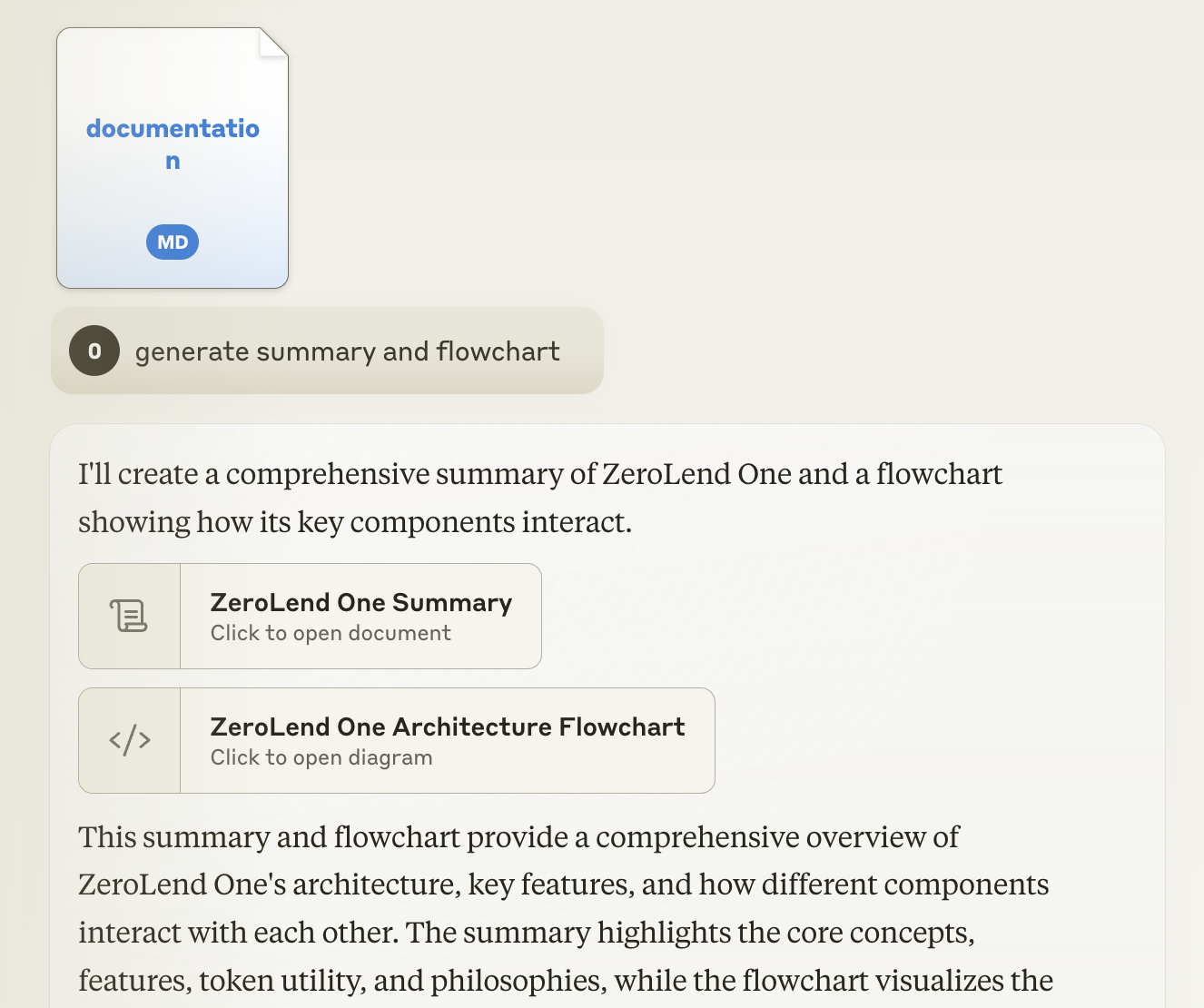Use AI to summarize documents and generate flowcharts in minutes
How to use AI to summarize documents and generate flowcharts in minutes ?
Transform an online GitBook document into Markdown using a Python script
Jump to github url https://github.com/A2-Security/GitBook-Scraper
Clone repo using the following command
1 | git@github.com:A2-Security/GitBook-Scraper.git |
Ensure that you have the following installed
- Python 3.x
- Python packages: requests, beautifulsoup4, html2text
Let’s take zerolend project as example, the official document url is https://docs.zerolend.xyz.
1 | if __name__ == '__main__': |
Replace above official document url to whatever you need.After modify it to your own url, run the following python script.
1 | python3 gitbook_scraper.py |
After successlly execute the python script you’ll see the documentation.md on your root directory.
Feed the markdown file to AI
Let’s take claude.ai as example.
Copy the generated flowchart to online mermaid website.
view the flowchart online
Jump to website https://mermaid.live/ , paste the copyed flowchart code to it.

Why we need this ?
As we know, Web3 security competitions are time-limited. Participants who grasp the entire system quickly gain an advantage in identifying more vulnerabilities. With the help of AI we can generate flowchart in minitues. Furthermore, we have a summary of the entire project. I’m not entirely convinced that AI will replace auditors in the near future, but I am certain that those who don’t utilize AI will be left behind.